Letter from the top-left corner of Cymru; Trwyn y Gadair (Carmel Head)
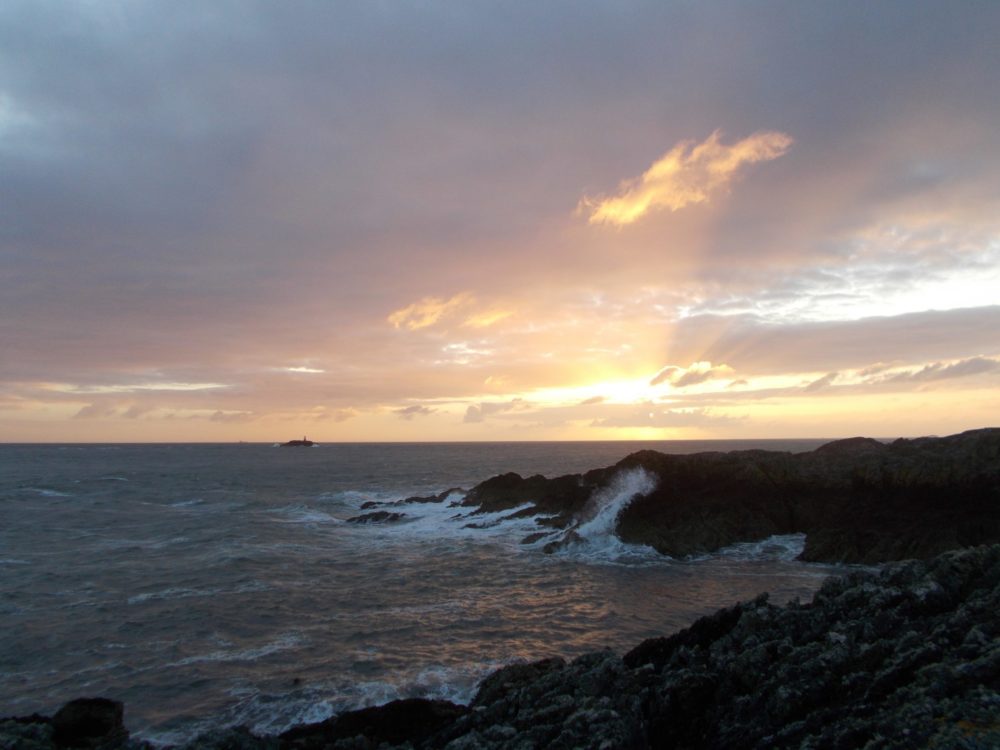
The first dispatch from each of the four corners of Cymru travelled to by bus and on foot from Machynlleth which is somewhere near the middle.
Julie Brominicks
When Mark the driver kills the engine for a moment in Dolgellau, sparrow sound fills the space. We pick up a woman with a walking stick and a plumber running late and when we’re approaching Porthmadog, Mark points out the Scots pine which the egrets and herons squabbled over in spring (‘and the egrets won’) and already it seems like today might belong to the birds.
It’s three hours to Bangor and I’ve a bus to Amlwch, another to Cemaes, and a seven-mile walk still to go.
Air’s what I want meantime and the Bangor air is wobbling the hanging baskets and giving sway to the hollyhocks outside Deiniol Shopping Centre.
Air and a quick squint at the John Granville Gregorys in the cathedral.
They’re a contemporary take on Caravaggio classics and I like how Gregory (like Caravaggio, who has brought stone-breakers and prostitutes into galleries where folk can sometimes be snooty), painted ordinary people.
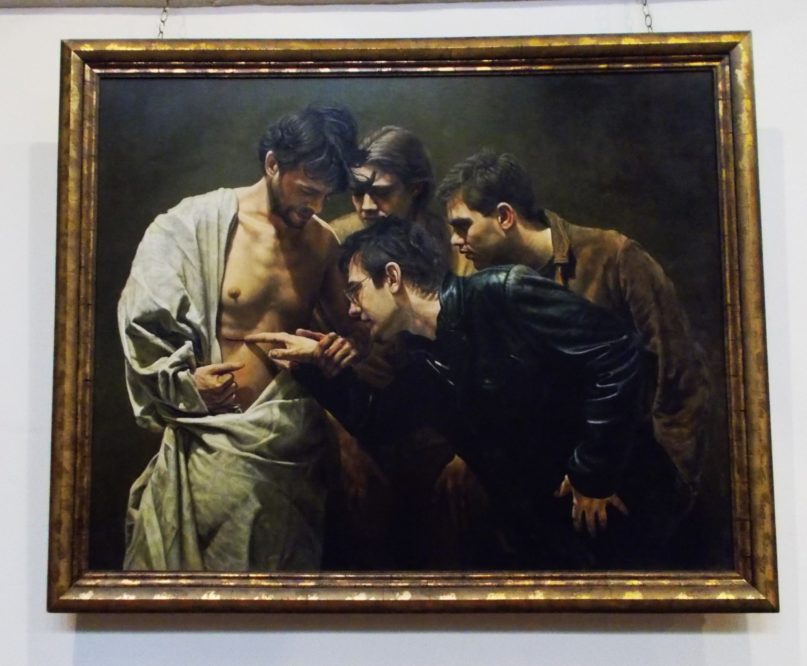
People can also be snooty about buses. But here now on the 62 is a wonderful man who has clocked my rucksack and me his Cymraeg and we’re sharing trail notes and he says if the language goes from Pen Llŷn then it’s really gone.
He grew up in Y Berwynion and remembers the evacuee kids there who spoke two languages; Belarusian and Welsh. And an American pilot with a Brooklyn accent who crashed in the mountains and because no one understood English had to borrow a horse and ride down to the town to report that his crew were all dead.
When he alights he says sincerely ‘Diolch am dysgu’ and I love him.
Sign
Bus languages. A bit of Urdu and Spanish and on my return, an animated conversation in sign Cymraeg, but fewer drivers speak it as the long-distance Traws-Cymru routes unroll and you might not notice it rippling mellifluously the norther and wester you go, dwi ddim yn meddwl becoming ‘dwimomeddo’ and ‘da bo!’ instead of hwyl fawr.
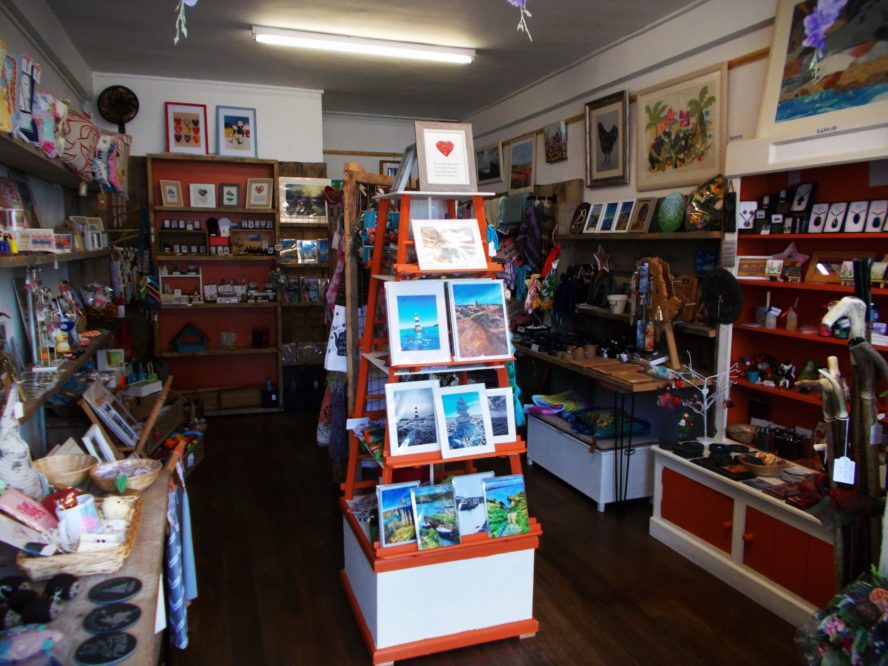
In Amlwch there’s a bloke with a smashed nose needing money for coffee who could be straight from a Caravaggio.
There’s a wind bowling up the high street where empty shops have got shabby because (so I’m told by someone who has heard) the landlords won’t let people rent them and I feel that old anger at the copper industrialists who exploited both people and land (there’s still poisoned water running into the sea), their greed at odds with the residents who’ve set up allotments and Oriel Amlwch by the bus stop where thirty crafters each rent a shelf.
Nurse
‘We’re raising money to give to an NHS nurse creating activity packs for kids’ Pam who makes necklaces tells me. ‘One crafter donates all her takings to charity. There’s a lot going on in our little town’ and I know it even though I haven’t time for the bright harbour today.
Pam lost her Cymraeg at university and feels awkward about speaking it now. And when I reach Cemaes I meet a man who doesn’t speak it anymore either after living in Manchester, but mostly because he grew up twenty miles away in Caergybi.
‘People here laugh at Holyhead Welsh’ he says. ‘They say it isn’t true Cymraeg.’
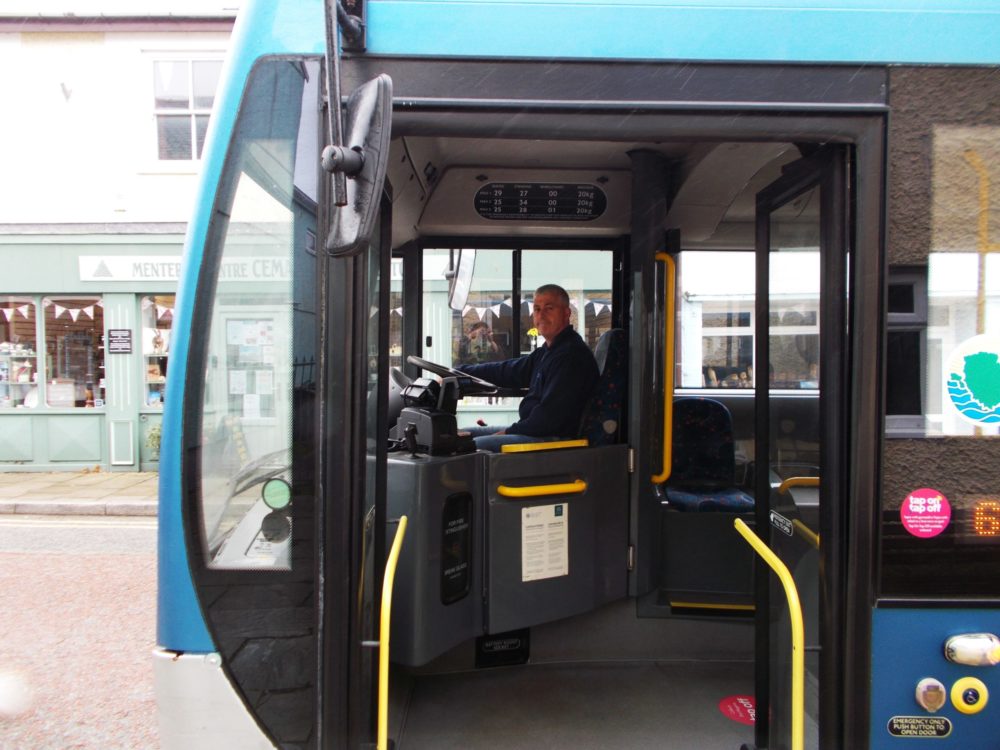
Election tannoy announcements sounding somewhat dystopian (and not therefore at odds with Yr Wylfa nuclear power station for whose toxic waste there is still no storage solution) accompany me out of Cemaes. Pleidleisiwch Plaid Cymru, llais lleol cryf am Ynys Môn. The wind is chiselling the wheat like fingers stroking a pelt. It is teasing the yellow rattle and bedstraw and soon it brings a new noise I recognise. Terns!
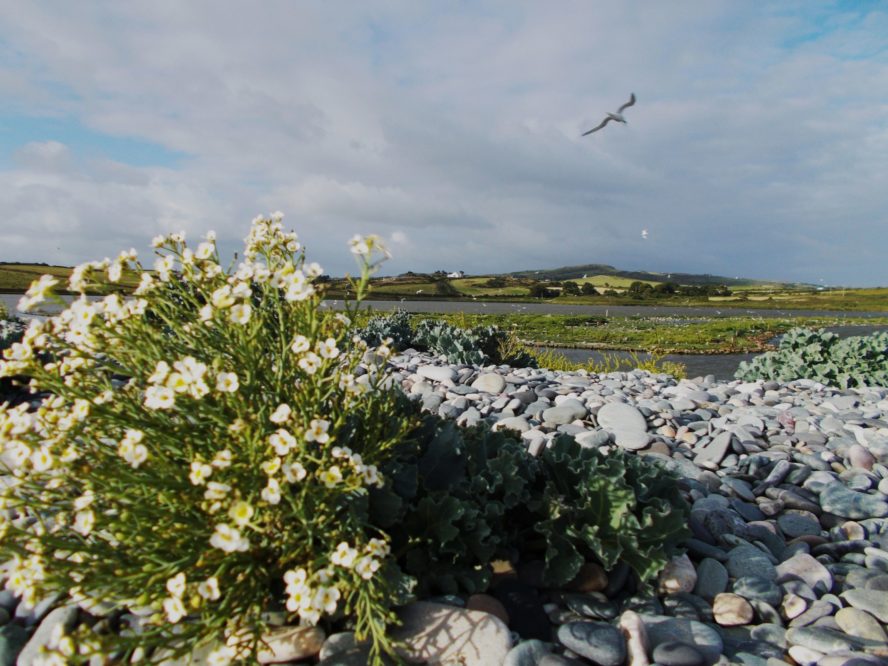
Terns
Môr-wenoliaid. Sandwich terns mostly, four thousand breeding on a shingle island in a saline lagoon created in the 1930s by ornithologist pilot Captain Hewitt. The sea’s kept at bay by a pebble ridge on which a dozen birders are crouched and sea kale is flowering; blurred white blobs like the terns till I raise my binoculars.
Why is this so thrilling?! Life in all its shit and raucous glory I suppose. A hint of ammonia and fish on the wind. The sound chaotic but the scene quite serene.
Clusters of unpaired adults passing time at the edge. Chicks wandering about. Adults at rest.
One preening and shaking out its wings like someone releasing shoulder tension after too long at a laptop. Three males, crests raised, making themselves taller. It’s like a summer crowd outside a bar.
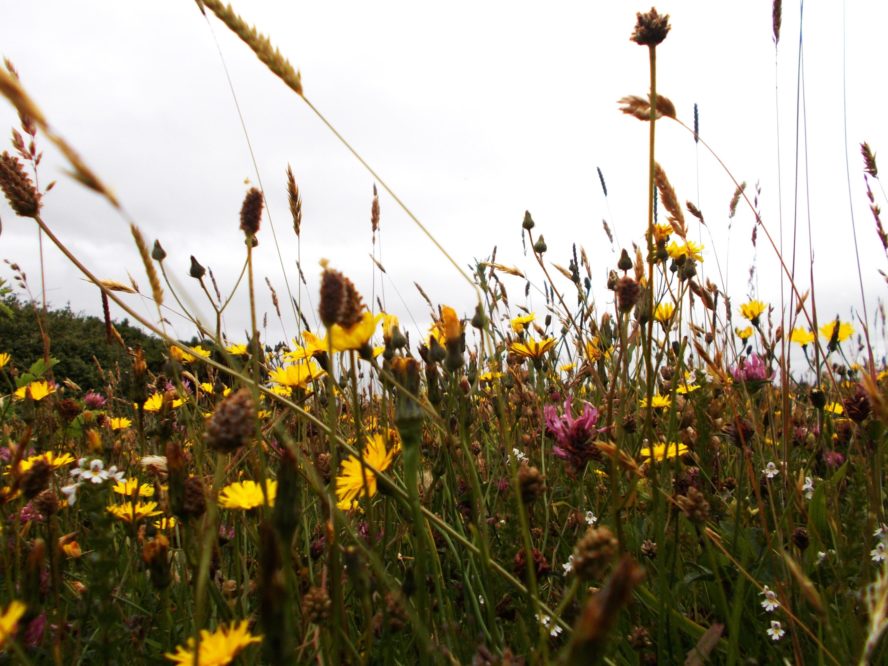
Photo:Julie Brominicks
Silver fish
Even offshore the parents returning with silver fish in their beaks are calling hurryupquick because their chicks, all brown and round and mobile have wandered off.
The pebbles are smooth to lie on. I point my camera at the birds zooming overhead but my camera’s small and quite sticky since I dropped it in a cup of wine and I get just thirty photos of sky.
One last look at the terns hovering above the island, downward pointing beaks and long tails and wings in graceful counterpoise. Looping like kites on invisible strings that bind them to their offspring, wherever they’ve gone.
Meanwhile the sand martins at Hen Borth flicker out of their burrows like leaves from a blower.
There’s Canada geese in the bay, a curlew lifting off the rocks and the restless wind brings seal moans and a yacht and no people at all.
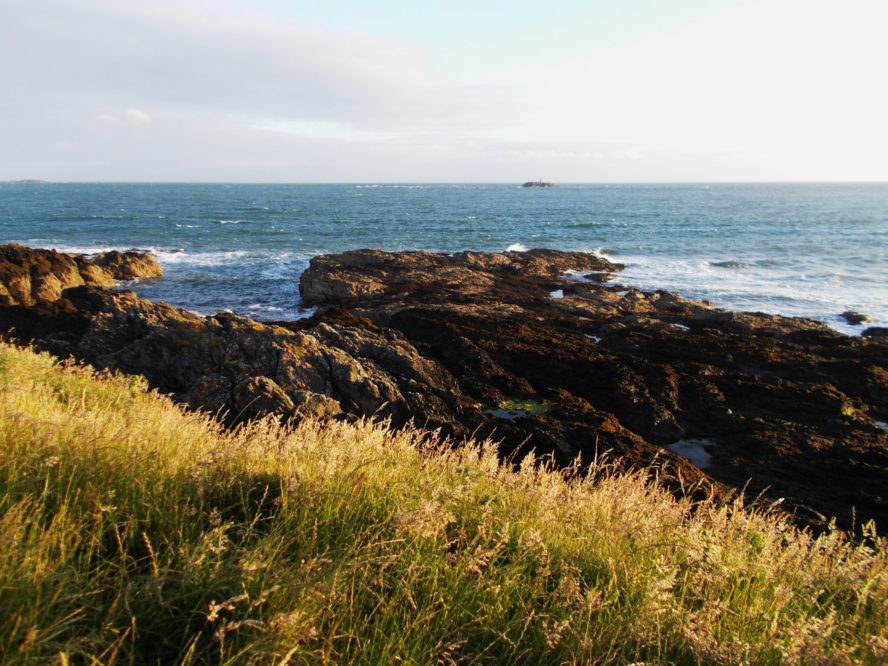
When Trwyn y Gadair and its navigation daymarks and consort of islands (Maen y Bugail, Ynys Padrig, Ynys Amlwch, and Ynysoedd y Moelrhoniaid) hove into view the oystercatchers are plaintive.
There’s air beneath a leaping hare. Swell muscling in and mauling the rocks. There’s lambent light on the lichen and on the seal that is watching me.
The Precambrian gneiss under my boots is grippy as melted kettle plastic.
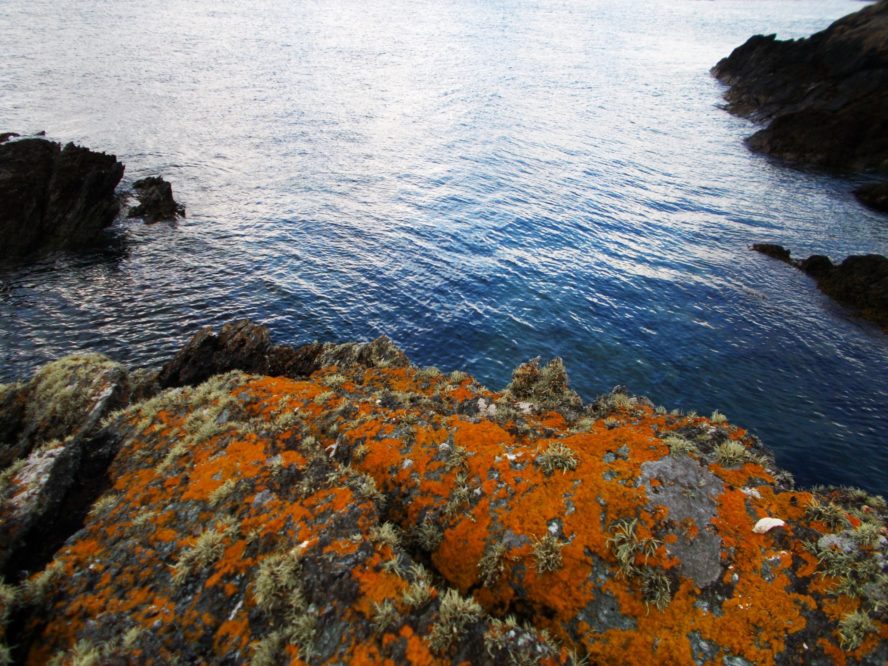
(Photo: Julie Brominicks)
Sun comes up like a bit of Amlwch copper and a juvenile herring gull wriggles out of a crevice and sloughs off the night.
It pauses to survey the day and for a few moments it’s just me and the gull at the top-left corner of Cymru and then it tilts into the wind and becomes airborne.
Support our Nation today
For the price of a cup of coffee a month you can help us create an independent, not-for-profit, national news service for the people of Wales, by the people of Wales.






Sgwennu lyfli.
Diolch! x
As a dyn saesneg who moved to Porth Amlwch, Ynys Môn, when I was 4, leaving again when I was 18 for work, i loved this article. What a shame, though, that bobol Cymraeg feel they can.t speak their native tongue anymore because of living away yn Lloger. My Cymraeg is pretty sketchy, but when i return to Wales, Aberystwyth was my last visit, I always try to converse a little yn Cymraeg and little by little it comes back. Dda Iawn Julie Brominicks on a superbly written article. Not been to Cemlyn for a few decades, Im 52 now… Read more »
Thank you Tim! All the best people are 52